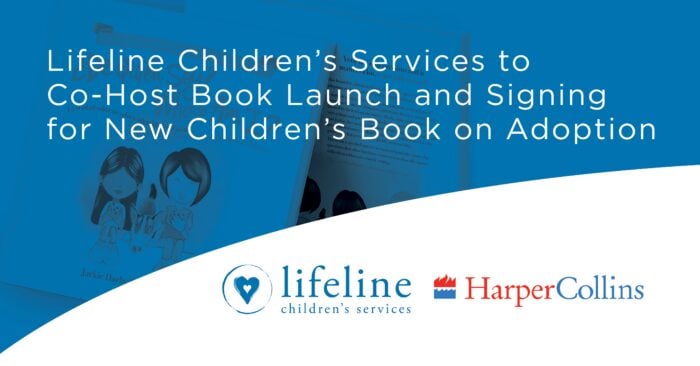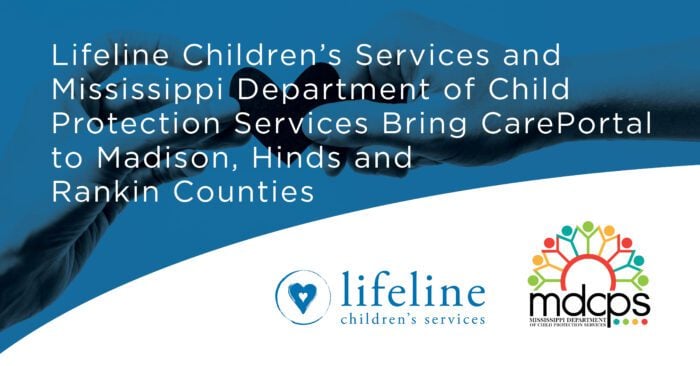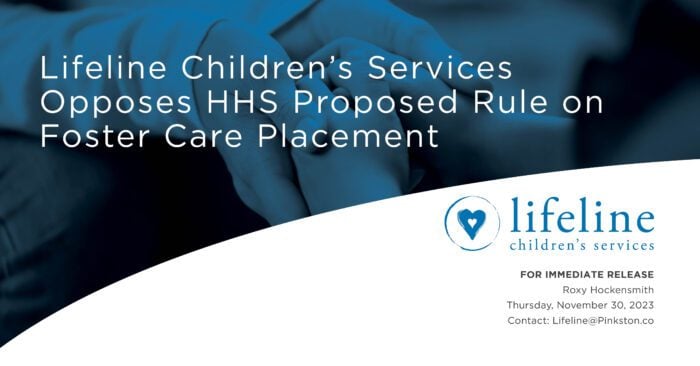

Eating is an essential part of development, as our physical bodies need physical nutrition. But, food means more than just nutrition. As Melissa Pouncey describes, “From the beginning of our lives, food means love. Our first experiences with our families involve filling our bellies—it’s how we bond with one another and how our parents learn about our needs . . . Food is how we fellowship with one another, how we socialize, and how we make some of our deepest memories.”
Because of the impact that early life has on food and eating, children from trauma often have feeding challenges. We talked with Melissa Pouncey, a speech therapist, who specializes in children from hard places and has worked closely with Lifeline in training caregivers through (un)adopted® trips. She has given us a basic understanding of feeding issues and when therapy is needed.
- What are common feeding issues for kids from trauma backgrounds?
When you’re the parent of a child who has experienced trauma, whether in foster care or adoption, eating and food might not have the positive feelings and meanings that is has for others. Eating may be tied to anxiety, deep hunger, or routines that lacked a nurturing touch. For these reasons, creating positive eating habits may be difficult, but crucial to your child making progress, enjoying social eating experiences, and growing healthfully.
Additionally, many children, both with and without a special needs diagnosis, become challenging feeders because of poor oral motor skills. So, what may look like pickiness to some may actually be a motor or sensory challenge to that child.


- Why is my child having a feeding issue/is a picky eater?
While many children who have trouble eating are labeled as “picky eaters”, in actuality, many children have functional or sensory oral motor differences that may make eating challenging. Oral motor differences may be either genetically or environmentally caused.
Oral motor development begins at birth. Babies need to learn to suck, swallow, and breathe in sequence. Early sucking on a bottle and slightly later, mouthing toys, builds sensory inventory inside of mouth, as well as oral motor strength. Missing out or not be able to engage in these experiences may change a child’s ability to use their sensory system typically.
Development continues progressively as children learn to use their mouth for speech and eat more complex food, around 1-2 years in typical development. Around the same time that children use consonant sounds playfully, they begin to be able to use lips, cheeks, and tongue more skillfully. Rather than a simple up/down motion, they can move food circularly and laterally inside their mouths. If muscle groups are not used or development is interrupted, oral development can be stopped or interrupted.
- What are some common special needs that are prone to needing help with feeding skills?
Many different types of children may have naturally poor oral motor skills. Children with a diagnosis of cerebral palsy, Down syndrome, autism, developmental delay, and many others may have unique challenges in moving food in their mouths and making sounds in imitation accurately.
A common phrase in oral motor therapy is: What you see in the body is what you see in the mouth. When looking at a child’s overall body, you may be able to see differences that also exist in the structure and function of their mouth. For example, children with “low tone” in their bodies may have decreased tone in their mouths, meaning feeling/knowing where food is inside their mouth may be more difficult. Or, children with tighter muscles may also have tighter muscles in their mouth, making movement more difficult for manipulating food and making sounds.


Five areas of oral skills may be impacting a child’s ability to manipulate food: jaw, lips, cheeks, tongue, and breath support.
- Jaw: The jaw is the foundation for oral skills. Children with weak jaws may have their mouth open much of the time, and may drool more than other children do. Children who struggle to chew may stuff their mouth and push food back whole, or may prefer to eat textures that do not need to be chewed.
- Cheeks:Children with weak cheeks may also have their mouths open much of the time. They may kiss with an open mouth rather than closing their mouth, and will have difficulty blowing. If cheeks have decreased strength or sensitivity, food may get lost in cheek pockets, a choking hazard.
- Lips:Children with weak lips may lose milk or food early on as they are bottle drinking. They may not be able to close lips for sounds that use their lips (m, b, d, t), or may use flat lips when trying to blow bubbles or suck from a straw.
- Tongue coordination:The tongue should be able to retract, extend, and move side to side easily. When the tongue cannot move on command or does not have coordinated movements, food cannot be moved through the mouth easily. Food may get suck on one side, or may get swallowed without being chewed. The tongue may also protrude or hang out without strength or coordination to keep it back.
- Breath support:Children who are weak throughout their body may struggle to move air through their mouth for speech. These same children may also struggle coordinating air while drinking a bottle when there are small.
- How do I know when I need to seek professional help? At what point do we recognize that feeding issues go beyond cultural/food differences between their country of origin and the U.S.?
Pickiness and adjustment to a new food type and style are completely normal. We all have preferences, and we should! Your child should be able to engage with food in a fun, social way and should have foods that they can enjoy in all food groups. Give your child time and space but know that help is out there if you need it.


Here are some questions to ask yourself as you consider whether it might be time to seek a professional’s help on your journey:
- How long has your child been in your care?
- Does your child experience strong emotions related to mealtime?
- Does your child exhibit behavior associated with mealtime that concerns you?
- Does your child lose food from their mouth while eating or drinking? Or do you have other concerns about the WAY that eating looks for them?
- Does your child have a very limited selection of preferred foods?
If your answers were yes to questions 2-5, a feeding specialist might be able to guide you to ways to help your child specifically. Keep in mind that every child is unique and his/her past experiences with food may take as much time to re-create as they took to create. This means that even with good feeding therapy, it may take years to create eating habits that are healthful and appropriate, so have patience. If you answered less than a year to question one, barring weight or serious nutrition issues, you might want to wait a little longer.
- What types of help are available to our family?
If your child is under three, you might begin with a referral to the Early Intervention program in your state. These programs are free and generally natural-environment-based, which means your child will be treated in your home or their daycare. This is the best model for a child learning to build attachment with you and their caregivers.
If your child is not eligible for Early Intervention due to their age, you might need a referral to outpatient speech or occupational therapy. Both sets of therapists have training in feeding.
Begin seeking out a feeding specialist with your local pediatrician, social worker, or International Adoption Clinic, whichever knows more local therapeutic resources. While other parents might be good resources as well, keep in mind that professionals like these may know more resources that are research-based and accredited.


Questions you might ask your pediatrician:
- Is there any reason that my child might need some testing (like a Modified Barium Swallow) before we refer to a therapist?
- Does this clinic commonly work with feeding disorders?
- Have you ever referred a child here who has been in foster care or has been adopted?
- Does this clinic use a multi-disciplinary team approach? (meaning professionals work together to benefit each child)
- Will my insurance cover this therapy?
Once you get referral information, your gut is the best tool you have in discerning whether that professional is the right fit for your child. As one family expressed: “Bad therapy is worse than no therapy at all.” Your therapist should be working to benefit your child, so if anything is being taught that causes behaviors or emotions to escalate, you might be in the wrong clinic.
Never be afraid to be an advocate for your child – they need you to be their voice! You might use a phone call and/or an initial evaluation to build an impression of that professional.
- What should I look for in a feeding therapist?
Here are some questions you might ask or things you might look for in a clinic:
- Ask about feeding training and certification, and especially about licensure. Be sure that the professionals you’re trusting are professionals. Speech and occupational therapists have a national and state board certification. They may also have other training specifically in feeding disorders, so ask what approaches they are trained in and do your research (potentially along with your pediatrician, if you need guidance).
- Ask general questions about approaches to feeding. Are their beliefs grounded in child-led play and sensory exploration? Professionals that are more play-based will be more compatible with a child learning to build trust and attachment.
- Ask their general thoughts on behavior, and rewards/disapproval. In general, therapy that is compatible with attachment parenting should never encourage parents to withhold attention or affection to encourage their child to eat.
- Will you be in the room with your child, and how involved will you be in therapy? Families of children learning to build trust should be veryactive participants in the entire process with their child.
- Ask about home planning and how involved that professional will be with carry-over at home. Will you be working together to build a plan for your family? Can other family members gradually participate in therapy so everyone is on the same page?
- Finally, a pediatric speech therapist or occupational therapist should be joyful and fun.While feeding disorders can be very serious and stressful to families, choosing a professional that puts you and your child at ease is so important. You and your family may be spending a lot of time with this person—so choose someone who wants to truly know your child and approaches them with love. Give yourself permission to make this your priority as you are selecting the right person to treat your child.


- How can therapy help?
Therapy can work to address your child’s sensory, motor, and emotional responses to food and can give you a plan for how to feed them. Your therapist may work with an occupational therapist (they can also address feeding concerns), a variety of doctors, and/or a nutritionist. Therapy should always involve you as the parent and should focus on tools for feeding outside of therapy. Always be your child’s advocate and give your therapist plenty of feedback.
As you and your family journey through the years of adoption or foster care, you may find you need extra support, whether right away or in the future. If you have questions about challenges or just everyday life that your family is experiencing, please contact our Post-adoption team or our Counseling team at 205-967-0811 or email us here.
You can find further in-depth answers from Melissa’s experience with food therapy and feeding issues in her three-part blog:
Tackling Feeding Challenges: The Basics
Tackling Feeding Challenges: Oral Motor Differences and Feeding
Tackling Feeding Challenges: Feeding Therapy and Finding the Right Fit
Melissa Pouncey graduated from the University of Alabama with her Master of Science in Communicative Disorders in 2010. Since the day after graduation, she has been joyfully serving children in their natural environment setting inclusive preschool and outpatient programs families with United Ability. She contributed knowledge to Lifeline Children’s Services in training for social workers and training families in Crossings. In 2016 she travelled to China with Lifeline to train caregivers in Lifeline’s previous foster center and several orphanages. Melissa has spoken locally and nationally to various groups about communication and feeding. Her specialties include international adoption, Autism, AAC for children with multiple needs, oral placement therapy for speech and feeding, and child advocacy. Melissa is state board certified as well as American Speech and Hearing Association (ASHA) certified.




